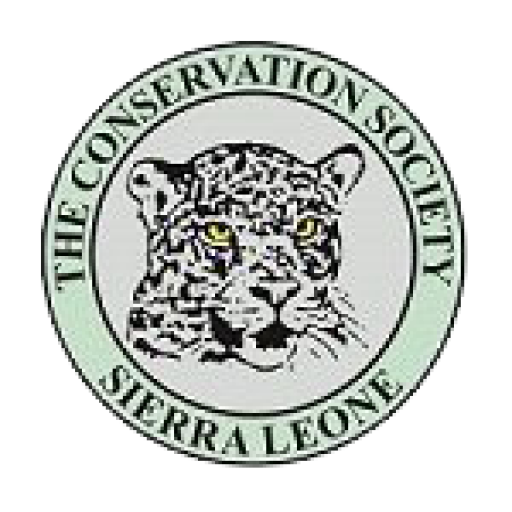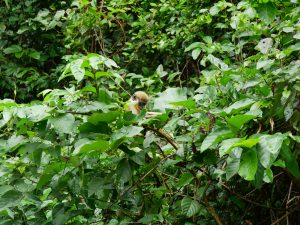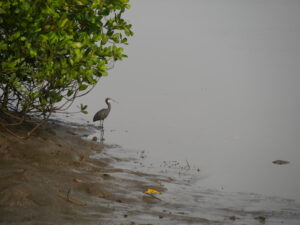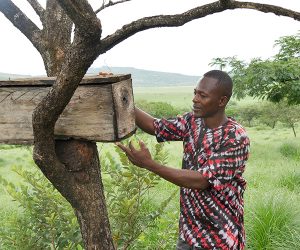Background - information about previous work at Yawri Bay Marine Protected Area
In an effort to increase the level of protection of the Yawri Bay Marine Protected Area Authority (MPA), the Conservation Society of Sierra Leone with support from the Critical Ecosystem Partnership Fund (CEPF) between March 2021 and June 2022, engaged key stakeholders to ensure improved recognition and protection of the Bay. Through the project, we assessed the laws of the responsible agencies that protect the Bay and proffered recommendations; we developed a management plan for the Bay; concluded the process of boundary delimitation of the Bay; conducted biodiversity surveys; assessed the socio-economic impact of the communities in the bay and initiated engagement with the private sectors to develop a memorandum of understanding on drafting a conservation agreement with the communities.
Additionally, in 2023 with support from Wetlands International through the PAPBIO project, we continued with our engagement drive to continue working with relevant stakeholders including communities to strengthen their capacity and ensure increased protection of the bay. Through the project, we established school nature clubs in all the chiefdoms including the Western Rural Area, established community advocacy champion groups, and trained community eco-guards and advocacy champions on effective communication skills and monitoring and patrolling of the IBA. We further established a mangrove restoration and management committee and further restored at least 4 hectares of mangroves in one of the degraded areas in the Morchail community.
These two successive interventions in the Yawri Bay MPA have given rise to the current project “The Blue Natural Capital Financing Facility (BNCFF)” which will last for one year and four months (October 2023 to March 2025). The Yawri Bay BNCFF project in Sierra Leone focuses on mangrove conservation and restoration to address resource depletion from overfishing and deforestation.
Situation we are facing
The Yawri Bay community, reliant on fishing for income and sustenance, faces challenges in adapting to climate impacts on livelihoods and rights.
The current levels of over-exploitation, combined with external impacts on Yawri Bay, threaten the resource base, ecosystem functions, and local people’s livelihoods and reduce the options for long-term, sustainable development for community resilience. Mangrove loss and degradation for salt production and other economic activities such as fish smoking results in loss of key fish spawning and bird feeding areas, exposure to flooding, erosion of the coastline and riverbanks and loss of productive land for farming; disturbance and loss of biodiversity, all of which reduce future options for sustainable livelihoods development.
Our goals
The project approach involves continuous awareness-raising campaigns of local communities and other stakeholders, continuous community engagements, and working with local community structures to deliver actions on the ground and to support local communities to boost their incomes through livelihood initiatives and empower them to build their capacity and improve on their skills.
Our activities
The project will pilot five climate-smart livelihood options, reducing ecosystem degradation and enhancing socio-eco\nomic status. Targeting 50 hectares within the Marine Protected Area, it aims to improve biodiversity, boosting tourism potential for 80,000 coastal residents. Emphasizing youth and women’s involvement ensures skill retention and immediate adoption of new management practices. Stakeholder engagement, habitat restoration, and monitoring are key, with government and local communities encouraged to participate actively. This initiative promotes sustainable practices and livelihoods, underpinning ecosystem protection and climate change mitigation.
Key activities
The main activities of the project include but not limited to;
- Awareness-raising campaign
- Promote livelihood initiatives to boost household incomes of local communities
- Restoration of at least 50 hectares of mangroves in degraded sites to promote ecosystem resuscitation and improve biodiversity conservation and protection
- Using innovative approach (using tree tracker) to monitor mangroves
- Increase communities’ participation through community meetings
- Capacity building through training of local communities
Expected outcomes
Participatory co-management and sustainable use of the natural resources of the globally significant Yawri Bay MPA and ecosystem services, supporting coastal community livelihoods and resilience promoted.
For further information, please feel free to contact
our Project Manager Abdulai Dauda
Email: abdulai.dauda@cs-sl.org
or info@cs-sl.org
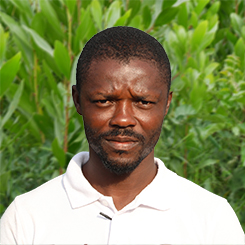
Latest news about BCNFF at the Yawri Bay
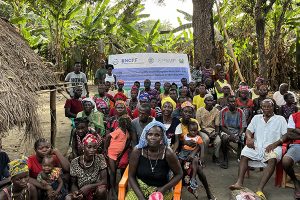
CSSL establishes and trains village savings and loan associations (VSLA) in Yawri Bay communities
Mangrove forests are rich in diverse resources, supporting the coastal livelihoods of people living in and around these areas. These coastal communities have strong economic
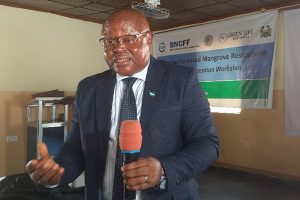
CSSL Commences a Community-based Mangrove Restoration Intervention at Yawri Bay
Yawri Bay is known for being a home to several ecosystem types, and accounts for 14.3% of the total mangrove swamp in Sierra Leone. Its
